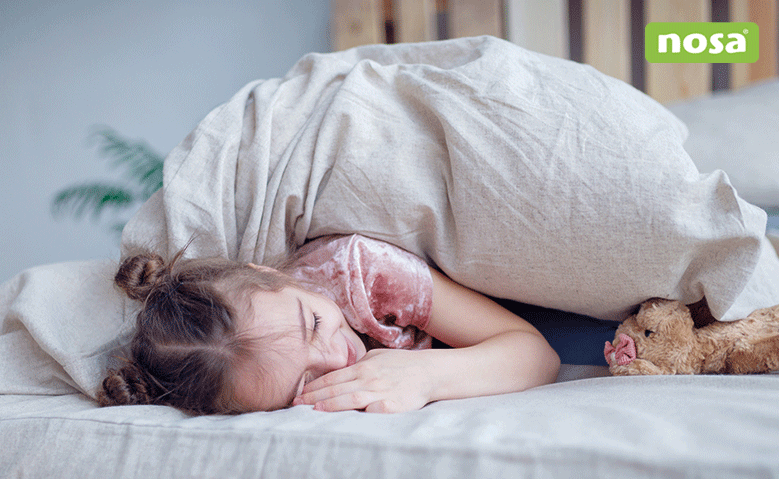When it is time to go to bed, some children suffer from irrational fear and cannot go to bed alone, they have to turn on the light, stand with the door open or sleep with their head in the sheets. Nightmares can be a frequent occurrence and on many occasions, as parents, we have to comfort children afterwards. But in addition to nightmares, there is also something less common: night terrors. A sleep disorder that can be similar to a nightmare, but much stronger and more intense. Do you know if your child has experienced them? Do you know what causes them? Do you know how to act? We tell you.
What are they?
Everyone goes through different phases of sleep throughout the night. Night terrors usually occur more than three hours after falling asleep. That is, when the transition takes place from the deepest phase of sleep to the shallowest phase of REM sleep, the stage where dreams take place. This change is usually very smooth, but sometimes this is not the case, giving rise to night terrors.
Why do they happen?
Night terrors occur due to hyperactivation of the child's nervous system. They are rare, occurring in between 3% and 6% of children between 4 and 12 years old. A child may have a single night terror or several before they disappear completely. Most cases disappear as the nervous system is fully formed. In addition to this, it can also occur in children with:
- Stress, fatigue or tiredness.
- When they are ill.
- When they take new medicines.
- When they find themselves in a new environment.
What do we do in this situation?
Normally, when it happens, the child calms down and falls back to sleep within a few minutes. For this reason, even if the first reaction is to wake the child up, it is not recommended.
During the episode, the child may sit up, scream, sit up, breathing and heart rate accelerates, sweating and is often agitated. After a few minutes, the child calms down and goes back to sleep peacefully, the next day he or she will not remember anything. Letting it pass is the best way to react. If you wake them up, they are likely to be disoriented and have a much harder time falling back to sleep.
Although there is no treatment, you can help to improve the situation:
- Ensuring that the child gets the necessary amount of rest.
- Performing relaxing routines before going to sleep
- Reduce stress for the child.
If the night terrors do not go away, the best thing to do is to visit the paediatrician and discuss what is happening. If necessary, a referral to a sleep specialist will be made. By understanding the situation, parents can act accordingly and be calmer.







Leave A Comment
You must be logged in to post a comment.